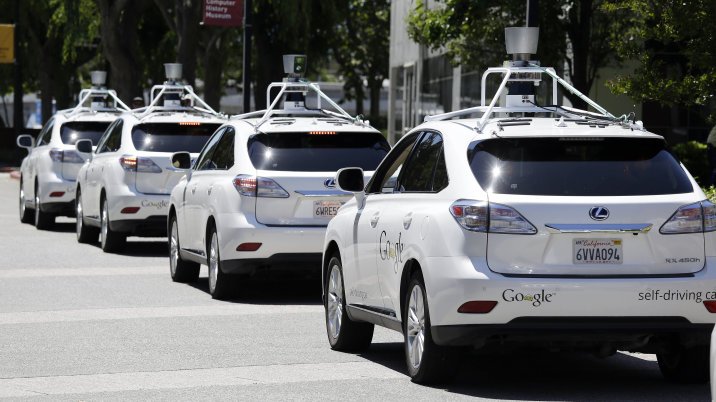Uber to Work with U of A on Mapping, Self-Driving Cars

The partnership announced Tuesday between the San Francisco-based company and the university includes a $25,000 grant to UofA's College of Optical Sciences. Uber will also test its self-driving vehicles on Tucson streets.
"We'll work with some of the leading experts in lens design here at the university to improve the imagery of what we capture and use to build out mapping and our safety features," said Brian McClendon, vice president of advanced technology for Uber. McClendon wouldn't elaborate on how many Uber employees would be working with university researchers but said he considers this a long-term collaboration. "I think the College of Optical Sciences is one of the leading in the world, and we are looking for improving the technologies that mapping and driverless vehicles are dependent on, and this is a great place to start," McClendon said.
Gov. Doug Ducey hailed the new partnership during a news conference at the university Tuesday. "It's in Arizona's best interest to embrace new technology," Ducey said. "This is about economic growth. It means new jobs, new research opportunities here at the UofA." Ducey has been a big proponent of Uber since taking office in January. The Republican governor stopped state regulators from enforcing regulations that required Uber drivers to have commercial insurance and licenses, saying the policy wasn't working and was hampering job creation. Then he backed a bill overhauling rules for ride-hailing companies like Uber and Lyft. The new law, which Ducey signed in April, removed regulatory roadblocks to the growing services.
In June, Ducey praised Uber at the formal opening of a new customer service center in Phoenix that is expected to eventually employ several hundred people. Ducey said at the time that Uber creates jobs and helps grow the economy, and the state should be helping it, not hindering it. Uber has made other efforts to boost its research into driverless cars.
The company partnered with Carnegie-Mellon University in Pittsburgh in February on a driverless car research lab. In March, Uber also bought digital mapping specialist deCarta, which provides maps for many consumer products, including General Motors' OnStar system.
Related News


